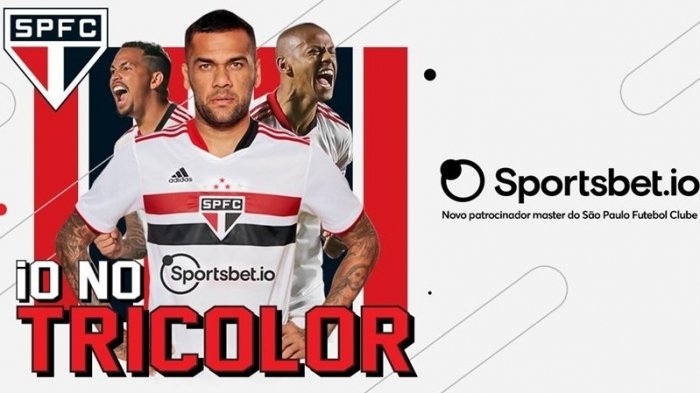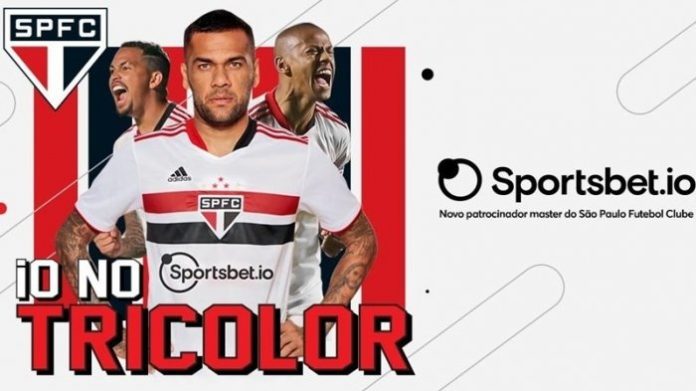
Cuaibá is the only club that hasn’t yet signed a sponsorship with the betting sector
T
he last team from the large group of soccer clubs to join the “sponsored by sports betting” was Juventude, which closed the deal with Marsbet to print the company logo on its pants, and left Cuiabá alone as the only Series A club in the country that does not have an individual contract of this type.
The agreements have different aspects, and some cannot appear on the uniform, as is the case with Palmeiras, which gives Crefisa exclusivity on the shirt. The alternative, in this case, is to activate the association with Dafabet on the website, in the stadium, and in other actions on social media, for example.
However, there is also a strong presence as main sponsors. Atlético Goianiense, which in recent days announced the incorporation of Amuleto Net, joins Bahía (Casa de Apostas), Atlético-MG and Fluminense (Betano), Sport (Galera.bet) and São Paulo (Sportsbet.io).
“We see a favorable scenario for this market, not only in sponsorships but also in marketing actions with clubs, as we did with Bahía and Vitória, as well as activations with our television media partner,” said Hans Schleier, Business Director of the portal Casa de Apostas, which also sponsors the Vitória shirt, which is in Serie B.
Recently, Denilson became an ambassador for Sportsbet.io and Cafu presents his image for Rivalo, while Sportingbet has also sponsored several athletes from different sports.
The betting market is not yet fully regulated in the country. In December 2018, the Federal Government enacted Law 13,756 / 2018, which authorizes the Ministry of Finance to regulate fixed-fee sports betting operations in Brazil.
According to the Government’s own distribution portal, the modality would be an exclusive public service of the Union, whose commercial exploitation would be carried out throughout the national territory, in various commercial distribution channels, physical and also in virtual media.
The legislation in Brazil was expected to go into effect in 2019, but was postponed to 2020 and still awaits an endpoint in 2021, delayed by political time frames and the pandemic. For sports law lawyer Eduardo Carlezzo, the expansion of sponsorship in the betting market was already expected, despite not being entirely regular.
“It is important to highlight that this strong expansion of sponsorship occurs in the midst of a deregulated, if not irregular, market. This is because, although a law from the end of 2018 has opened the door to the regulation of sports betting, it depends on a concession process that moves slowly in the Federal Government for its full effectiveness, and that most likely will not come out this year,” says Carlezzo.
“In this way, everyone loses, the Government loses without the generation of taxes; the economy loses without the generation of businesses and jobs, and the clubs also lose, since, with a licensed market in Brazil we would also have the large operators’ global companies here, which would have the ability to increase the amounts in these transactions”, added the lawyer.
Recently, when they sold broadcast rights abroad, clubs opted not to include broadcasting to sportsbooks in the same package. The idea was that the market could grow much more with the enacted law.
The analysis of Pedro Trengrouse, professor of sports management at the FGV, a higher educational institution in Brazil, and also a specialist in the market, is in line with the one carried out by the clubs. “With smart regulation, the impact can be great. It is a market where potential is much greater than that of the one presented by lotteries today, mainly due to the greater commitment of young consumers and because it represents a new way of experiencing the sport. New tax revenues, sources of funding for public causes, job creation, increased competitiveness in the lottery market, new leisure options, expansion of responsible gaming policies, promotion of integrity measures in sport, and foreign investment,” Trengrouse explained.
Original article: https://www.yogonet.com/international//noticias/2021/08/19/58890-brazil-95por_ciento-of-first-division-clubs-are-sponsored-by-sports-betting-sites














